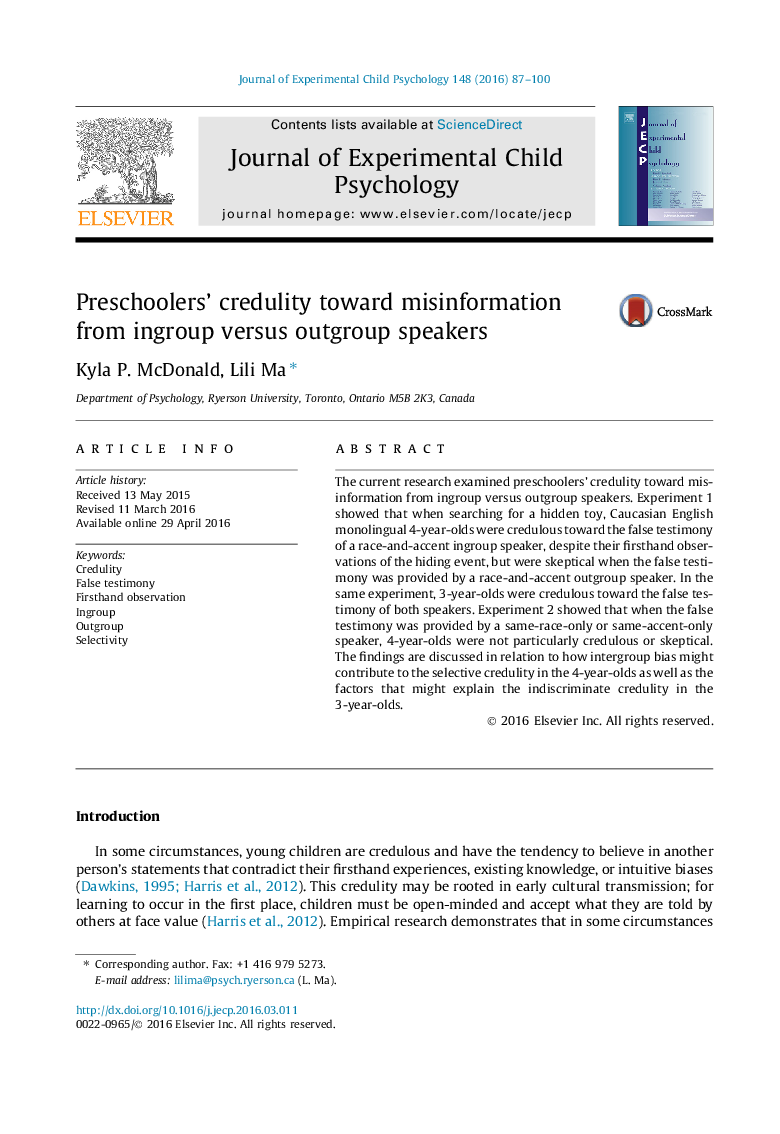| Article ID | Journal | Published Year | Pages | File Type |
|---|---|---|---|---|
| 7274667 | Journal of Experimental Child Psychology | 2016 | 14 Pages |
Abstract
The current research examined preschoolers' credulity toward misinformation from ingroup versus outgroup speakers. Experiment 1 showed that when searching for a hidden toy, Caucasian English monolingual 4-year-olds were credulous toward the false testimony of a race-and-accent ingroup speaker, despite their firsthand observations of the hiding event, but were skeptical when the false testimony was provided by a race-and-accent outgroup speaker. In the same experiment, 3-year-olds were credulous toward the false testimony of both speakers. Experiment 2 showed that when the false testimony was provided by a same-race-only or same-accent-only speaker, 4-year-olds were not particularly credulous or skeptical. The findings are discussed in relation to how intergroup bias might contribute to the selective credulity in the 4-year-olds as well as the factors that might explain the indiscriminate credulity in the 3-year-olds.
Keywords
Related Topics
Social Sciences and Humanities
Psychology
Developmental and Educational Psychology
Authors
Kyla P. McDonald, Lili Ma,
